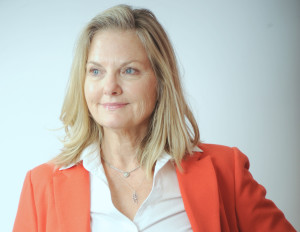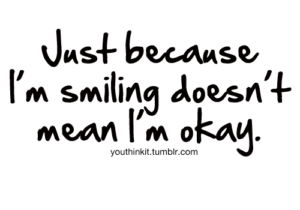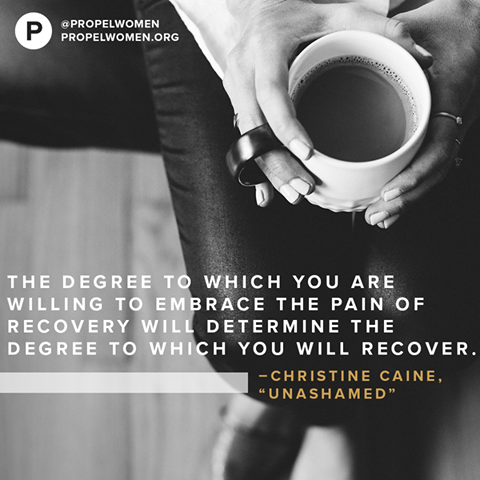I know a woman who recently had a crippling diagnosis handed down to her by her doctors. I can’t imagine bearing the news she was given. But you would never know how great her suffering is because all she ever says are things like, “Overall I feel exceedingly blessed,” “Don’t worry about me,” “I will be just great,” or “At least I have Jesus!”
I think there’s a bad habit amongst Christians, myself included, to quickly write off our pain. There’s this false interpretation of faith that says if our faith is strong, we won’t let our sufferings get to us. We’ll get over things quickly, because ‘at least we have Jesus,’ right?
This topic of brushing off our suffering was eloquently written about by Sarah Bessey. I really encourage you to go read her entire piece, The Sanitized Stories We Tell. In it, Sarah recounts (in her words) her ‘glorious and weird story’ of the traumatic birth of her son.
It is a story that she has told dozens of times, mostly humorously, but it wasn’t until she was gearing up to deliver her daughter six years later that she realized she hadn’t really dealt with the dark trauma of the event. Although she had joked about it afterward, the reality was that it had really scarred her. She had emotions from that day she still hadn’t dealt with 6 years later.
 Sarah writes, “I feel like we give out gold stars to people who get over things quickly… It makes me wonder how much pressure we feel to sanitize our stories so that they don’t make people uncomfortable, how we anecdote our experience with the lightness or the healing or birth or new life alone in order to make it acceptable. We simplify and sanitize and so we miss the healing we could have if we only spoke the whole truth.”
Sarah writes, “I feel like we give out gold stars to people who get over things quickly… It makes me wonder how much pressure we feel to sanitize our stories so that they don’t make people uncomfortable, how we anecdote our experience with the lightness or the healing or birth or new life alone in order to make it acceptable. We simplify and sanitize and so we miss the healing we could have if we only spoke the whole truth.”
As Christians, not only do we sometimes believe we have to get over things quickly, but we might even be tempted to compare our wounds to others and think that, as Sarah writes, “I feel I don’t get to be sad when other people are sadder for better reasons.”
But it is out of our wounded hearts that God has us serve and help others in their own journeys toward healing. As author Brennan Manning noted, “In a futile attempt to erase our past, we deprive the community of our healing gift.”
“As Christians, we know the Church is meant to be a hospital for sinners, not showcase for saints. Unfortunately, many of us still have a difficult time accepting our pain. When asked how we are, we choose to bury our feelings, put on a fake smile, and pretend that everything’s fine. A stain-glassed masquerade. Maybe it’s because we’re afraid of being judged, or maybe it’s because Christians see sadness as a moral failing. What’s clear is that bottling our sorrow never made someone spiritually healthy.”
The beauty of the gospel is that power comes via weakness. What appeared to be Christ’s weakest moment, his crucifixion, was actually a moment of incomprehensible power. His death and resurrection released the power of salvation for all who believe in him. In the upside down kingdom of God, weakness is strength.
Think about your own stories. What are some of the wounds that you have been tempted to brush off, maybe because you think that if only your faith were stronger, you wouldn’t feel the pain? Or maybe you keep your deepest hurts to yourself because others around you seem to be suffering more.
Let’s commit to living lives of vulnerability when it comes to our suffering, because you never know who might benefit from hearing your story. As Paul wrote, “But he said to me, ‘My grace is sufficient for you, for my power is made perfect in weakness.’ Therefore I will boast all the more gladly of my weaknesses, so that the power of Christ may rest upon me.”
Kelly Givens is the editor of iBelieve.com.

Fit Chicks! ask:
“What’s your story this year? Has it been okay to not be okay here and there?

